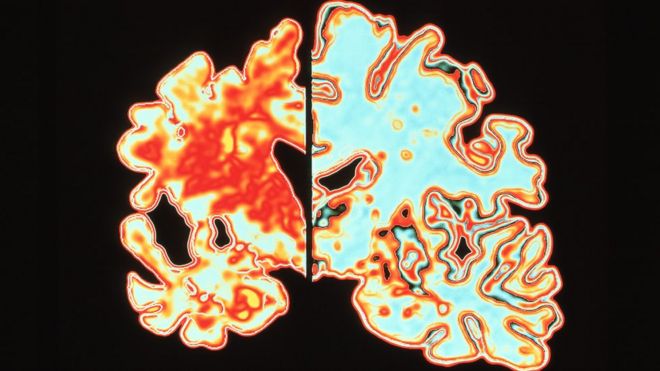Scientists Make Major Breakthrough In Fight Against Alzheimer’s...
Scientists Make Major Breakthrough In Fight Against Alzheimer’s Disease
February 27, 2018 - Scientists at the the Cleveland Clinic Lerner Research Institute have successfully reversed Alzheimer's disease in mice, a major breakthrough researchers are hopeful will translate into treatment for humans in the near future.
Scientists Make Major Breakthrough In Fight Against Alzheimer’s Disease
February 27, 2018 - Scientists at the the Cleveland Clinic Lerner Research Institute have successfully reversed Alzheimer's disease in mice, a major breakthrough researchers are hopeful will translate into treatment for humans in the near future.
“To our knowledge, this is the first observation of such a dramatic reversal of amyloid deposition in any study of Alzheimer’s disease mouse models,” said researcher Riqiang Yan in a news release concerning the study. The study was first published in the Journal of Experimental Medicine on February 14.
Researchers found that the deletion of BACE1 in adult mice reversed amyloid deposition and improved cognitive functions. "One of the earliest events in Alzheimer’s disease is an abnormal buildup of beta-amyloid peptide, which can form large, amyloid plaques in the brain and disrupt the function of neuronal synapses. Also known as beta-secretase, BACE1 helps produce beta-amyloid peptide by cleaving amyloid precursor protein (APP)," explains the Rockefeller University Press release. The scientists successfully "generated mice that gradually lose this enzyme as they grow older. These mice developed normally and appeared to remain perfectly healthy over time," notes the release.
Additionally, it was found that the mice's selectively bred offspring also formed plaques at 75 days old, "even though their BACE1 levels were approximately 50% lower than normal. Remarkably, however, the plaques began to disappear as the mice continued to age and lose BACE1 activity, until, at 10 months old, the mice had no plaques in their brains at all." “Our study provides genetic evidence that preformed amyloid deposition can be completely reversed after sequential and increased deletion of BACE1 in the adult,” said Yan. “Our data show that BACE1 inhibitors have the potential to treat Alzheimer’s disease patients without unwanted toxicity. Future studies should develop strategies to minimize the synaptic impairments arising from significant inhibition of BACE1 to achieve maximal and optimal benefits for Alzheimer’s patients.” As noted by Study Finds, there are still many more trials and test that must be completed before there can be testing on humans, but this latest discovery is "an historic step in the right direction."
scientists-successfully-reverse-alzheimers-mice-amanda-prestigiacomo
Last edited:



